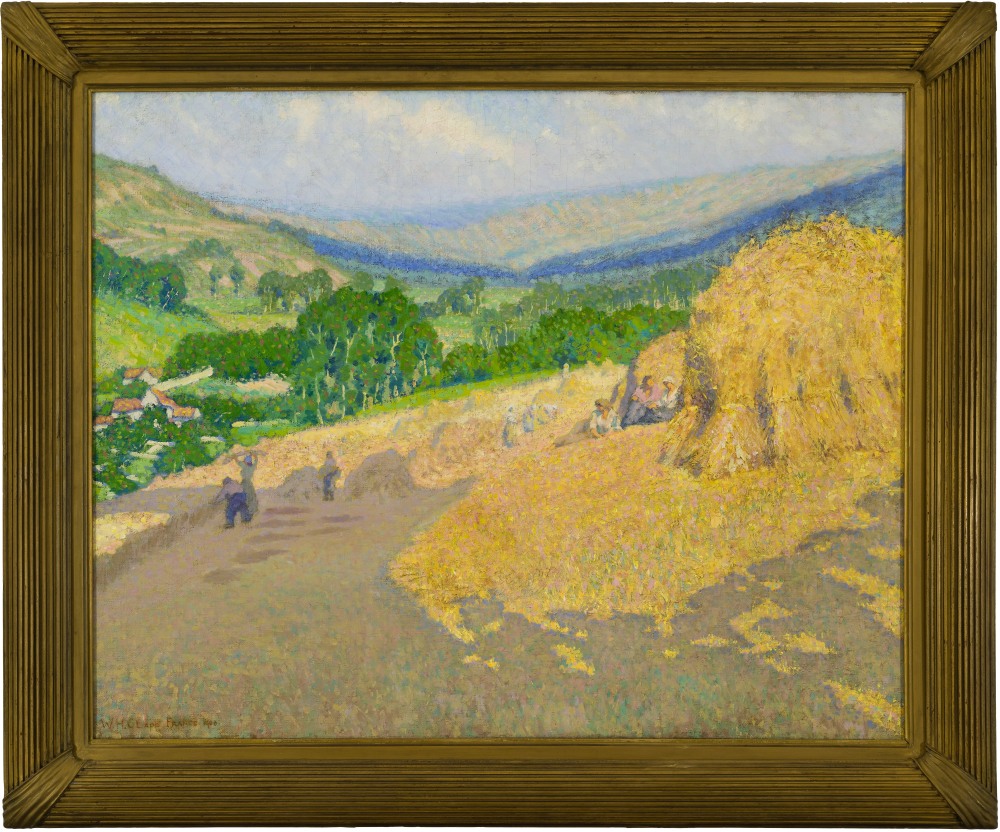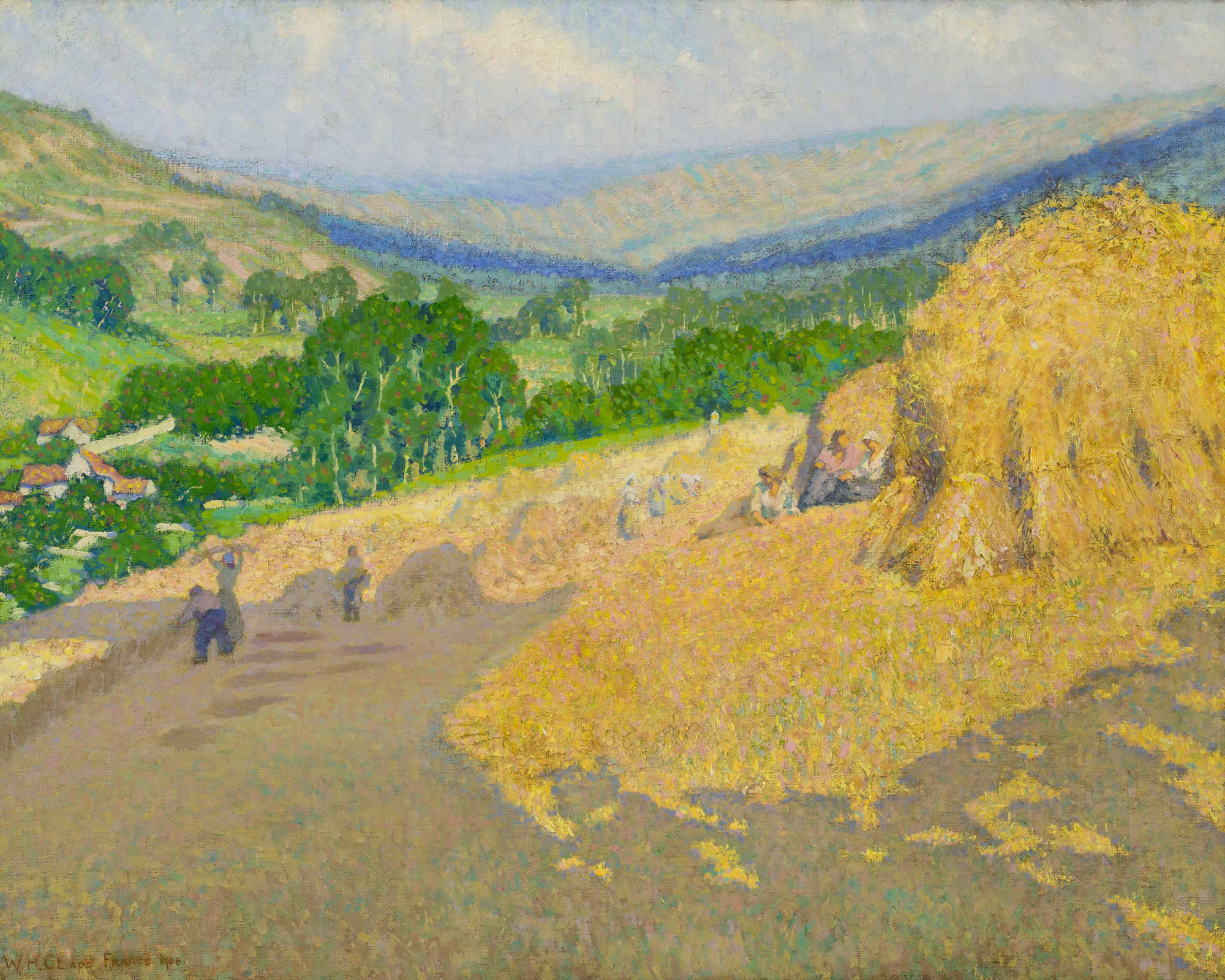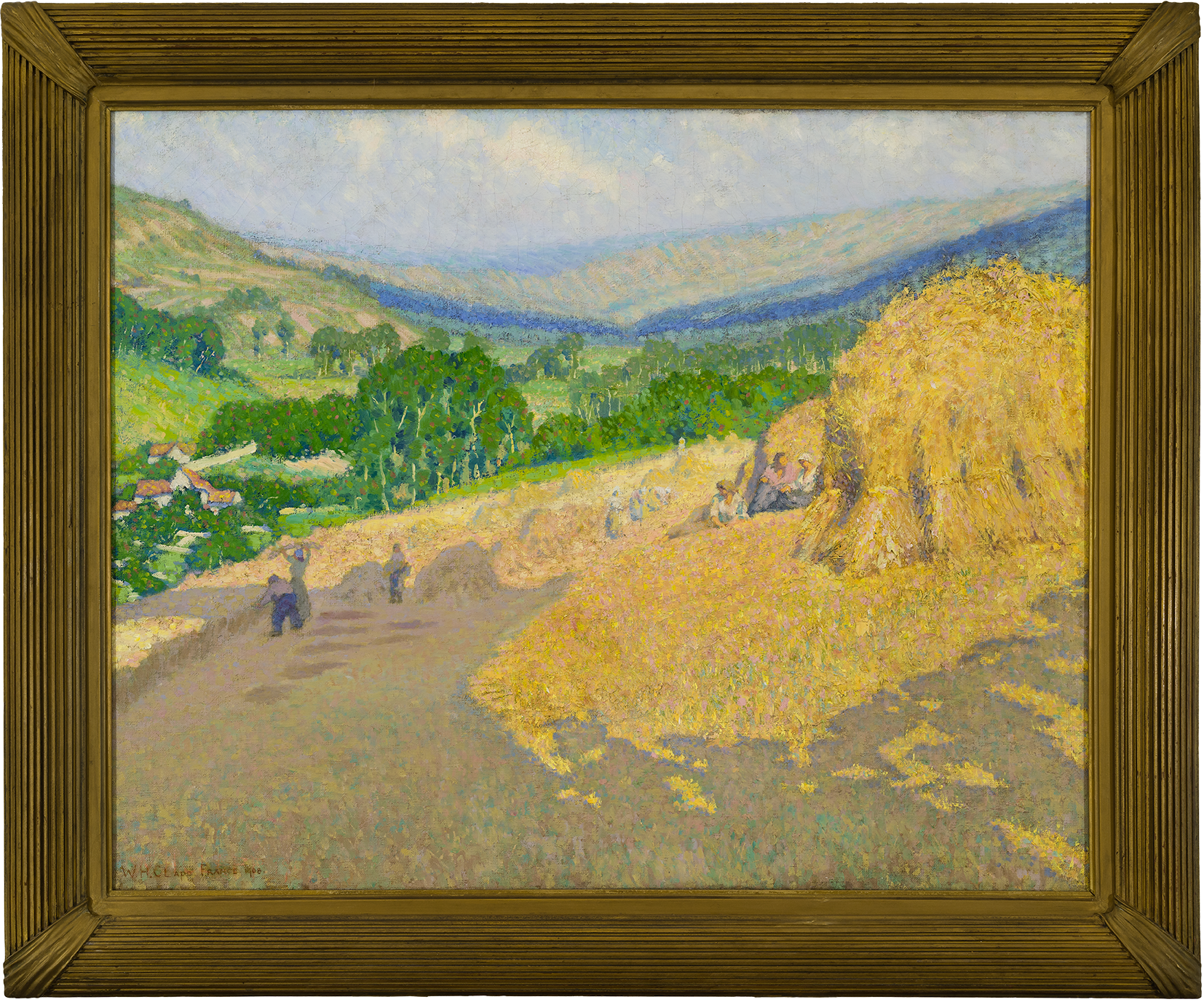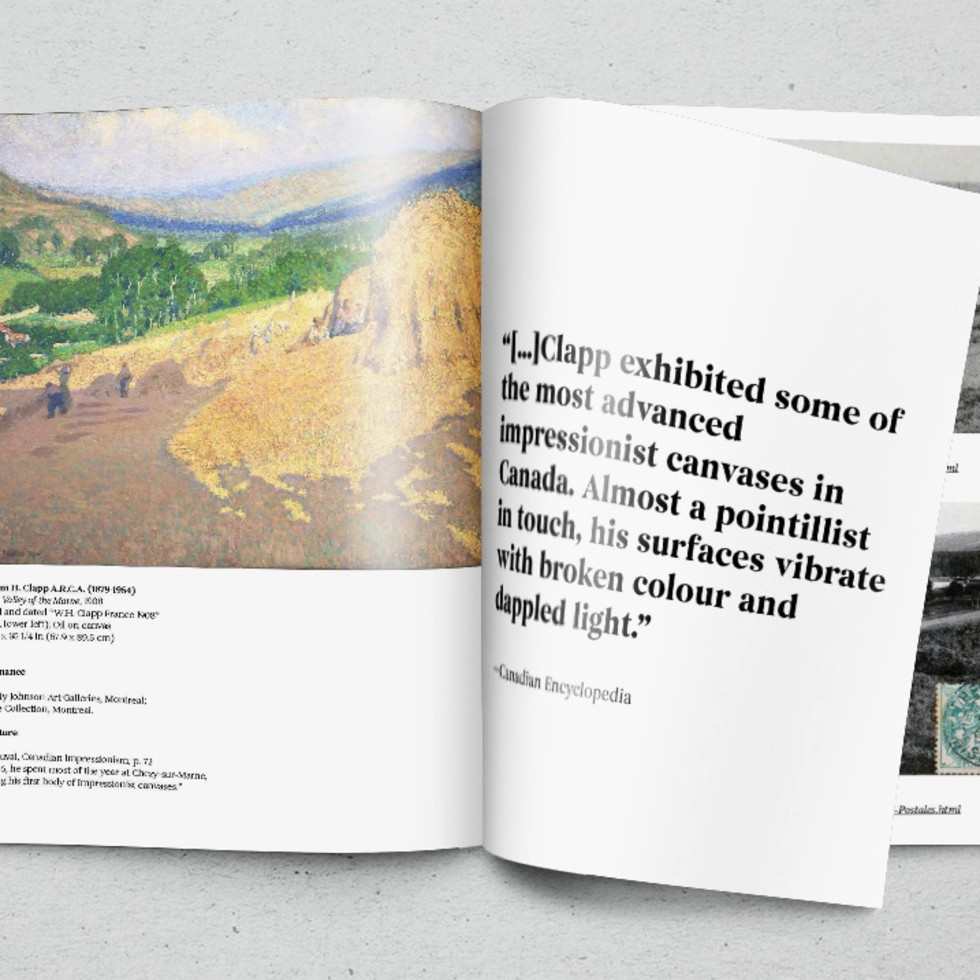Chézy, Valley of the Marne, 1908
67.9 x 89.5 cm
Provenance
Possibly Johnson Art Galleries, Montreal
Private collection of Mr. William Sutherland Maxwell (1874-1952), Montreal
Galerie Alan Klinkhoff, Montreal
Private collection, Westmount, Quebec
Exhibitions
Ottawa, National Gallery of Canada, Canada and Impressionism: New Horizons; Munich, Germany, Kunsthalle München,
July 19 - November 17, 2019; Lausanne, Switzerland, Fondation de l’Hermitage, January 24 - March 13, 2020; Montpellier, France, Musée Fabre, September 19 - October 20, 2020; Ottawa, National Gallery of Canada, February 26 - July 3, 2022,
no. 29.
Literature
Katerina Atanassova “Helen McNicoll: in Search of Light,” Magazine, National Gallery of Canada, May 4, 2023, https://www.gallery.ca/magazine/your-collection/helen-mcnicoll-in-search-of-light.
Katerina Atanassova et al., Canada and Impressionism: New Horizons (Stuttgart/ Ottawa: Arnoldsche Verlagsanstalt Publishers/ National Gallery of Canada, 2019), 68-69, 162 [reproduced].
Alan Klinkhoff Gallery, 70 Years (Montreal: Alan Klinkhoff Gallery, 2019) 46 [reproduced], 56.
An Ephemeral Moment in Time: Clapp’s Impressionist Perspective in "Chézy, Valley of the Marne"
Although referred to as “a newcomer to these RCA, Art Association of Montreal annual exhibitions” in 1908, William Henry Clapp was celebrated both immediately and regularly in the Art Association of Montreal exhibitions after his return from Europe, primarily France and Spain. At the 1908 Art Association of Montreal exhibition, Helen McNicoll and William Clapp shared the honours for the Jessie Dow prize for oils, for his impressionist style Morning in Spain. The winning picture was then purchased by National Gallery in April of that year when on view in the RCA exhibition in Toronto at the Ontario Artists Society building.
William Henry Clapp was born in Montreal, Quebec to American parents in 1879. The family returned to the United States in 1885 and settled in Oakland, California. Clapp returned to Canada in 1900, and enrolled at the Art Association of Montreal where he studied under William Brymner. During this time, he painted with Clarence Gagnon in Saint-Joachim and Baie St. Paul, QC. He left Canada again in 1904, this time with fellow Gagnon. In Paris, Clapp studied in Paris at the Académie Julian, the Académie de la Grande Chaumière and the Académie Colarossi. During his studies, Clapp was taken by the Impressionism and Post-Impressionism he found in France and adopted these techniques into his own art.
In 1906, Clapp spent almost a year at Chezy-sur-Marne creating “his first body of Impressionist canvases” (Duval, 72). The location proved an idyllic location for his studies of light. At first sight, Chézy, Valley of the Marne recalls works like Les Meules à Giverny from Claude Monet’s iconic series of wheatstacks in palette and subject matter. Like Monet, Clapp sought to capture more than the effervescent quality of sunlight; both artists allude to the passage of time in their respective series. The shadow in Chézy, Valley of the Marne, which slowly encroaches from the bottom of the picture plane, serves as a reminder of the movement of the sun over the field. Like a shadow on a sundial, Chézy, Valley of the Marne captures an ephemeral moment in time…












